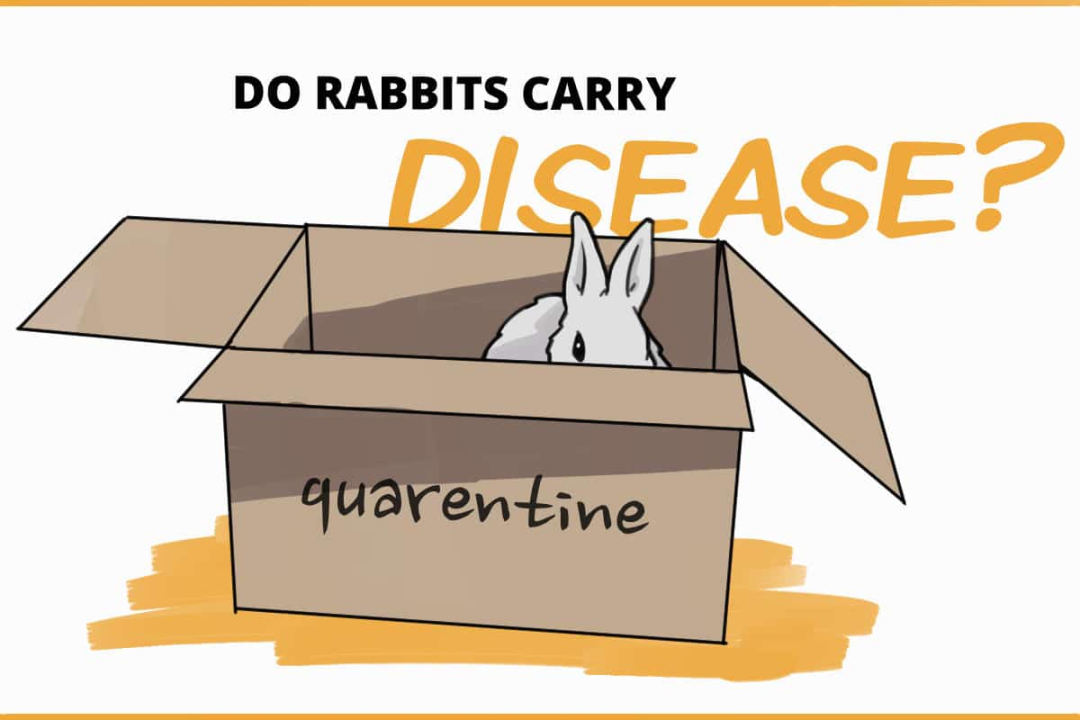Can Rabbits Carry Diseases?
Rabbits are adorable and popular pets, but it’s important to be aware that they can carry diseases that can be transmitted to humans. While rabbits generally pose a low risk of disease transmission, it’s still important to take precautions to ensure the health and safety of both the rabbit and its owner.

Diseases that can be transmitted from rabbits to humans
Although the risk is low, rabbits can potentially transmit certain diseases to humans. Some of the diseases that can be transmitted include:
- Tularemia: This bacterial infection can be transmitted through handling infected rabbits or their contaminated urine, feces, or saliva. Symptoms in humans include fever, headache, muscle aches, and swollen lymph nodes.
- Salmonellosis: Rabbits can carry Salmonella bacteria, which can cause symptoms such as diarrhea, fever, and abdominal cramps in humans.
- Ringworm: This fungal infection can be transmitted from rabbits to humans through direct contact. It causes red, itchy, and circular rashes on the skin.
Preventive measures to reduce the risk of disease transmission
While the risk of disease transmission from rabbits is low, it’s still important to take preventive measures to minimize any potential risks:
- Regular veterinary check-ups: Make sure to take your rabbit for regular veterinary check-ups to ensure it is in good health and free from any infections.
- Practice good hygiene: Wash your hands thoroughly with soap and water after handling your rabbit or cleaning its cage. This will help minimize the risk of contracting any potential diseases.
- Keep the living environment clean: Regularly clean your rabbit’s cage or enclosure to minimize the chances of disease transmission. Remove any soiled bedding and disinfect the area properly.
- Be cautious with children: Supervise young children when they are handling rabbits to ensure they don’t put their hands in their mouths after touching the rabbit.
While the risk of disease transmission from rabbits is generally low, it’s always better to take necessary precautions to ensure the health and safety of both the rabbits and their owners. – Dr. John Smith, Veterinarian
Frequently Asked Questions (FAQs)
1. Can I get sick from petting a rabbit?
While the risk is low, it is possible to get sick from petting a rabbit. Rabbits can carry diseases such as tularemia, salmonellosis, and ringworm, which can be transmitted to humans through direct contact. It’s important to practice good hygiene, such as washing your hands thoroughly after handling a rabbit, to minimize any potential risks.
2. How can I prevent diseases when handling a rabbit?
To prevent diseases when handling a rabbit, it’s important to practice good hygiene. Wash your hands thoroughly with soap and water after handling the rabbit or cleaning its cage. Additionally, keep the living environment clean and ensure regular veterinary check-ups to detect any potential infections early on.
3. Are all rabbits carriers of diseases?
No, not all rabbits are carriers of diseases. While some rabbits may carry diseases, the risk of transmission is generally low. It’s important to ensure that the rabbit is in good health, regularly visit a veterinarian, and maintain good hygiene practices to minimize any potential risks.
4. What are the common symptoms of diseases transmitted by rabbits?
The symptoms of diseases transmitted by rabbits can vary depending on the specific disease. Some common symptoms include fever, headache, muscle aches, swollen lymph nodes (for tularemia), diarrhea, fever, and abdominal cramps (for salmonellosis), and red, itchy, circular rashes on the skin (for ringworm). If you experience any of these symptoms after handling a rabbit, it’s important to seek medical attention.
Related Articles…
Copyright Notice:
Images displayed on this website are not our property, but are procured from the internet. If you hold copyrights to any image and wish for its removal, please get in touch with us.